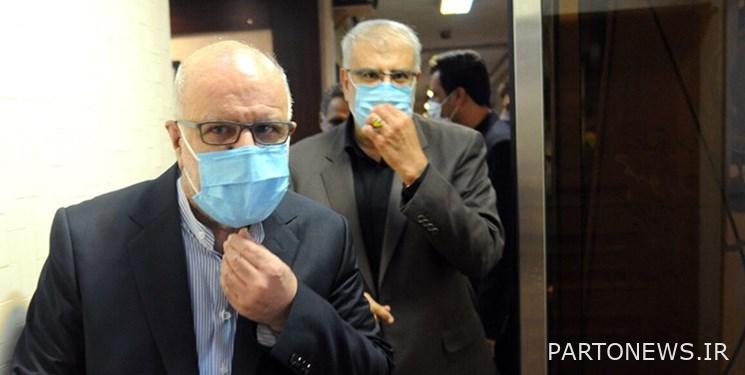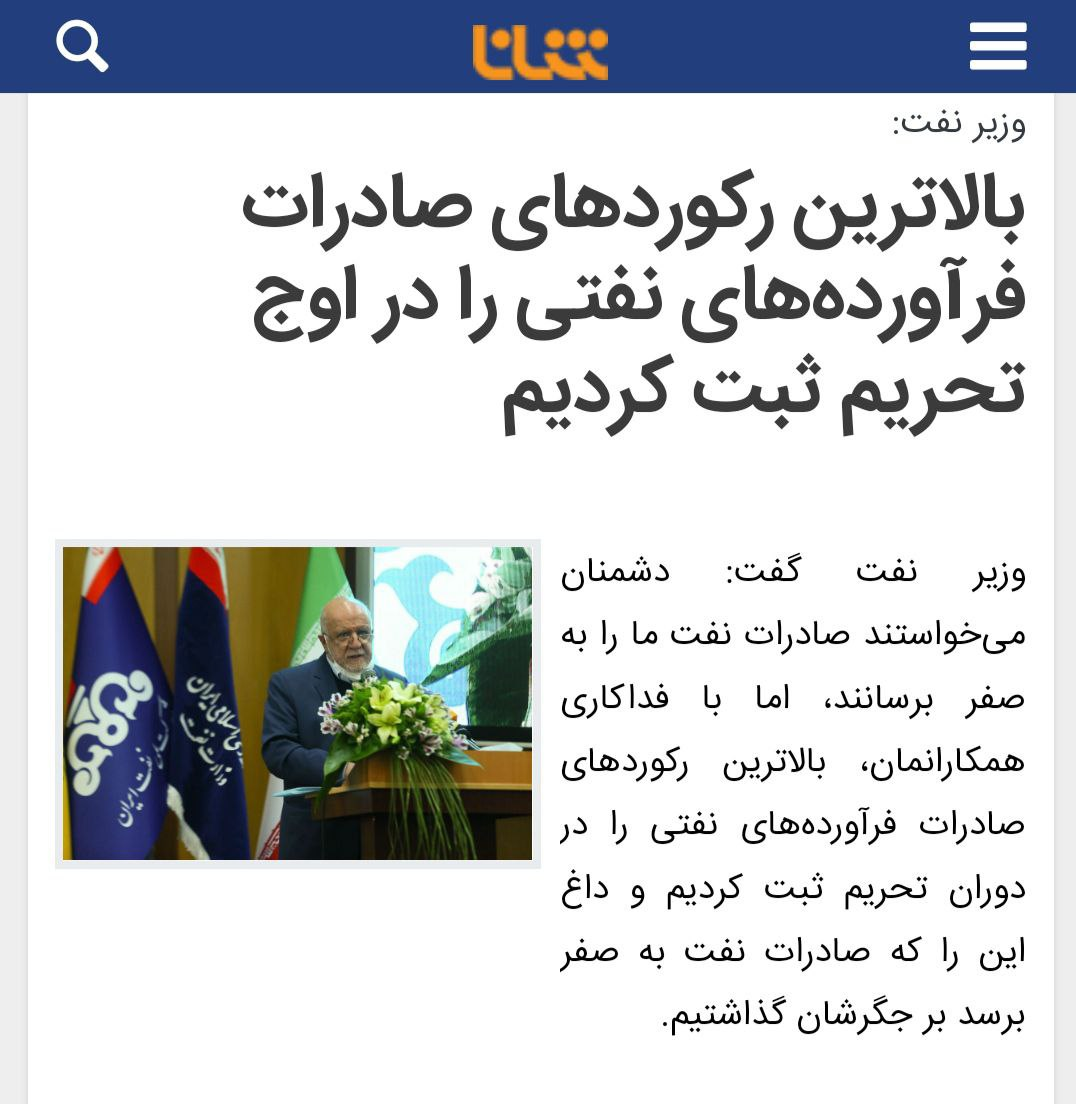Strategy A lesson that the government did not learn before exporting a billion dollars of gasoline in one day

According to the economic reporter of Fars News Agency, “Sanction” has undoubtedly been the biggest challenge of Iran’s oil industry in the last 10 years, which has destroyed many opportunities for the country’s development.
In general, two strategies have been defined to break the oil embargo in the country’s political environment:
- Negotiation and agreement with America to cancel the embargo
- Neutralization of sanctions
With the failure of the first strategy in the 8 years of the 11th and 12th governments, now the 13th government has adopted the strategy of “neutralizing the sanctions”. Of course, negotiating and agreeing with the US as a tactical measure to lift the sanctions and “gain economic profit from Iran” can be a desirable thing, provided that it is defined under the strategy of neutralizing sanctions and helping it.
* Four strategic actions of the Ministry of Oil to neutralize the sanctions
Over the past year, the Ministry of Oil of the 13th government has put 4 key actions on the agenda for the implementation of the strategy of neutralizing sanctions, which shows the choice of the correct strategy to break the sanctions. These four actions are:
- Market building for sustainable export of Iranian oil even under sanctions
- Getting rid of crude oil by defining refinery plans
- Revival of energy diplomacy to develop cooperation with regional countries
- Attracting investment and financing oil projects using the capacity of industrial holdings and banks
In the first report of the “strategy” case entitled “Iran’s oil exports without JCPOA jumped to more than one million barrels” the first action of the Ministry of Oil in oil market development was discussed. In this report, we discuss the second action of the Ministry of Oil in getting rid of crude oil sales.
* Why is the export of petroleum products not sanctionable?
Examining the experience of two periods of sanctions shows that the vulnerability of Iran’s oil exports to US sanctions is very high. In the meantime, two strategies are proposed to reduce this vulnerability: 1- Securing the flow of oil sales through market building, which was discussed in the first report of the “Strategy” case, and 2- Moving from crude oil sales to the construction of refineries for the production and export of products. petroleum
The difference in the structure of the market and trade of oil and oil products has caused that the US sanctions, despite being effective in the sale of Iranian oil, cannot harm the export flow of Iranian oil products.
The multiplicity of players in the oil products market, the variety of sales methods by sea and land, the export market close to Iran, and the small volume of shipments have caused the sale of oil products in a capillary network to be undetectable and undetectable for the United States.
But in the oil market, the situation is different, and there are only about 40 refineries in the world that can inject Iranian oil in their refineries, and these 40 refineries are located in a few countries such as India, China, Korea, and several other countries.
This issue has caused that, unlike the export of products, the export of oil is easily subject to sanctions. As a result, by building refineries and converting oil into petroleum products, it is possible to export manufactured products at a higher price under sanctions.
*Export of more than 1 billion gasoline in just one day
The export potential of petroleum products such as gasoline, diesel, jet fuel, liquid gas, etc. is so high in the conditions of sanctions that In the twelfth government on October 30, 1999, more than 1.2 billion dollars were generated in just one day with the sale of 28 million barrels of gasoline.
Image 1
Bijan Zanganeh, the former Minister of Oil, says about this: the enemies wanted to reduce our oil exports to zero, but with the sacrifice of our colleagues, we recorded the highest export records of oil products during the embargo period, and we put the burden of oil exports on their livers to zero. .

Picture 2
In the words of the former oil minister, one can accurately measure the country’s maneuverability in exporting oil and products in the conditions of sanctions, where despite the record-breaking export of oil products, only not reaching zero oil exports is considered an achievement.
*11 oil refining projects on the table of the Ministry of Oil of the 13th government
Despite the fact that the export of petroleum products cannot be sanctioned, the previous government did not believe in building a refinery and petro-refinery, and even the former minister of oil said in his statements that if we build a refinery, we will destroy the country.
In fact, the previous government’s strategy for Iran’s development was defined by selling crude oil and developing the country with oil revenues, and despite benefiting from the benefits of exporting oil products, in the field of strategy, it had no belief in neutralizing sanctions by building refineries.
With the inauguration of the 13th government, the strategy of the Ministry of Oil focused on neutralizing the embargo by getting rid of crude oil and building refineries. Currently, the construction of 11 oil refining projects is on the agenda of the Ministry of Oil, which Fars news agency reported in a report titled “11 tips about 11 refinery plans” has addressed it.
Last month, the memorandums of cooperation and financing for the construction of Marwarid Makran Refinery with a daily refining capacity of 300,000 barrels of heavy and extra heavy crude oil in Jask and Shahid Qassem Soleimani Petrorefinery with a daily refining capacity of 300,000 barrels of heavy crude oil in Bandar Abbas were signed today. In the presence of the President and the Minister of Oil, these plans were signed between the shareholders, the details of which are given in Table 1 and 2.
Table 1
Table 2
Referring to the definition of Shahid Soleimani Petrorefinery and Makran Pearl Refining projects in Hormozgan province, Oil Minister Javad Oji said: In the coming years, this province will become the country’s refining hub, during one year of the 13th government, about 24 to 25 billion dollars of new projects It has been defined and started in this province.
In general, the strategy of neutralizing the embargo under the policy of getting rid of crude oil by building refineries has the capacity to generate foreign currency for the country equivalent to crude oil export earnings.
end of message/
You can edit this article
Suggest this article for the first page

